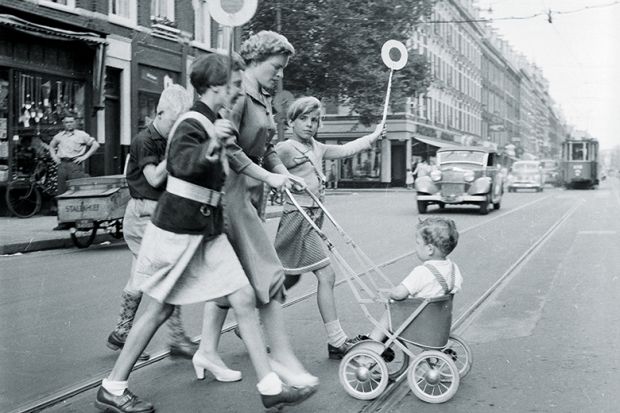It took me a month to read Sarah Knott’s Mother. Not because it is a particularly long book – at just over 300 pages, it is pleasingly portable, moving from bedside table to handbag with ease – but because I read it in fits and starts between other commitments. On the train to work, in 15 minutes over lunch – and, yes, in between the demands of mothering my own lovely but demanding preschooler. Fortunately, it is also a book of fits and starts, by which I mean nothing derogatory about its structure. Knott has managed to capture something of the push and pull, get up and down, walk back and forth of raising a child. Or, as she puts it, “ ‘mother’ as a verb”.
Each chapter is only a handful of pages long and is led by anecdote, both historical and personal. To the casual observer, that might obscure the fact that this is a meticulously researched and constructed work that provides an ambitious record of motherhood from the 17th century to the present day, in Britain and the US. Knott’s method is shaped both by the “fragmentary, piecemeal quality” of the historical evidence for motherhood and by her own experiences of maternity. As psychoanalyst Lisa Baraitser has observed, motherhood lends itself to anecdote because the mother’s personal narrative is constantly interrupted. Her sleep time, her work time, her recreation time: these are as fragmentary and piecemeal as the trace she leaves on the historical record.
Knott notes that a wider tradition of historical writing by feminists has featured personal anecdotes in openings and closings, referencing the historian’s own experiences as a framing device for an analysis that is otherwise written as if from an “objective” distance. She herself prefers an analysis that emphasises the work of history as, like mothering, “a form of embodied labour”, where choices in research and writing are informed by one’s own lived experiences as much as by the historical record. The result is a book that draws empathetic connections between Knott’s own life and the lives of her historical subjects, while avoiding glib comparisons. It allows her to speculate on history that is unwritten: how a 17th-century English woman, or an 18th-century Cherokee woman, might have felt while they were in labour, for instance. I recognise the strange feeling Knott shares of being outside time from my own experience of labour; it is no great stretch to wonder if a Jane Josselin or Qualiyuga felt it too, even if they gave birth in vastly different circumstances.
Is there an element of fiction-making in the drawing-together of scraps of anecdote into something called history? Yes, and one that is essential to the scholarly method of Mother. Knott uses it to explain why this work does not deal with infant mortality or maternal loss: writing four weeks post-partum, she reports, she turns the spines of books on those topics to the wall, the mere idea of them making her panic. There is a pure sort of courage, in an industry that can still denigrate feminist scholars for taking things too “personally” and not writing “objectively”, in admitting to feeling too much. This book made me cry: and, as a historian as well as a mother, I am glad of that.
Rachel Moss is a lecturer in history at the University of Northampton.
Mother: An Unconventional History
By Sarah Knott
Viking
352pp, £14.99
ISBN 9780241198605
Published 7 March 2019
POSTSCRIPT:
Print headline: Rocky terrains of the motherland
Register to continue
Why register?
- Registration is free and only takes a moment
- Once registered, you can read 3 articles a month
- Sign up for our newsletter
Subscribe
Or subscribe for unlimited access to:
- Unlimited access to news, views, insights & reviews
- Digital editions
- Digital access to THE’s university and college rankings analysis
Already registered or a current subscriber? Login






